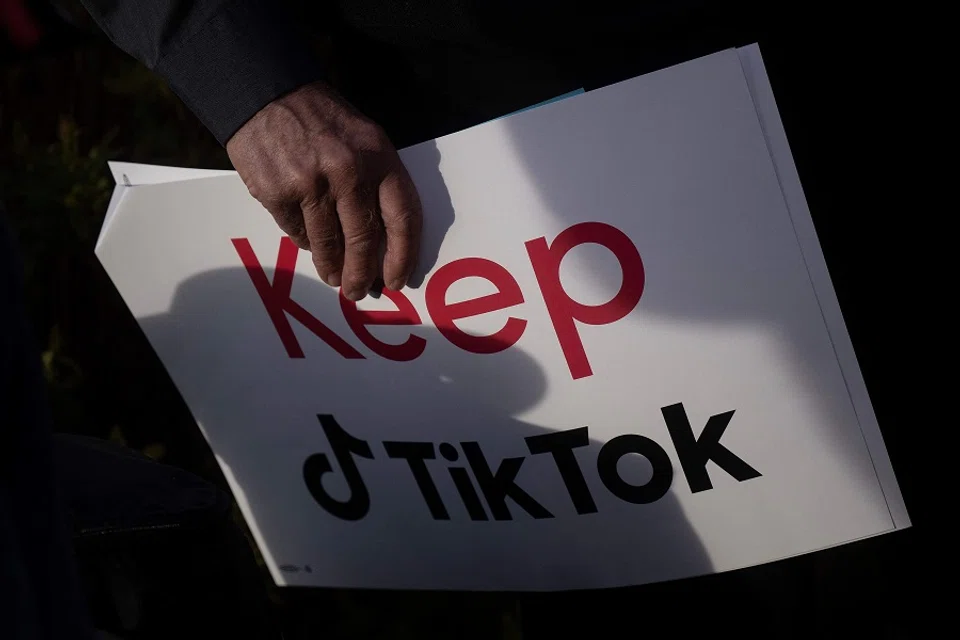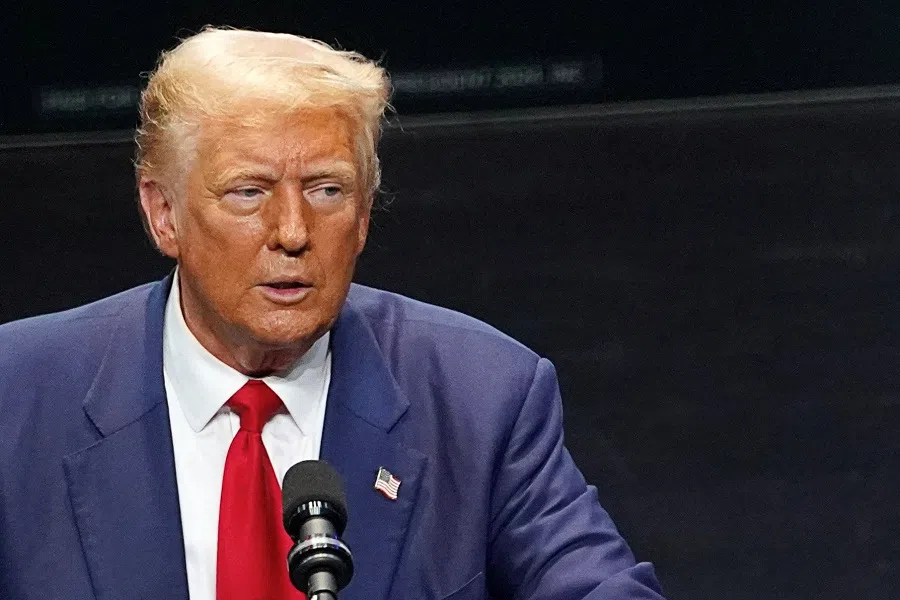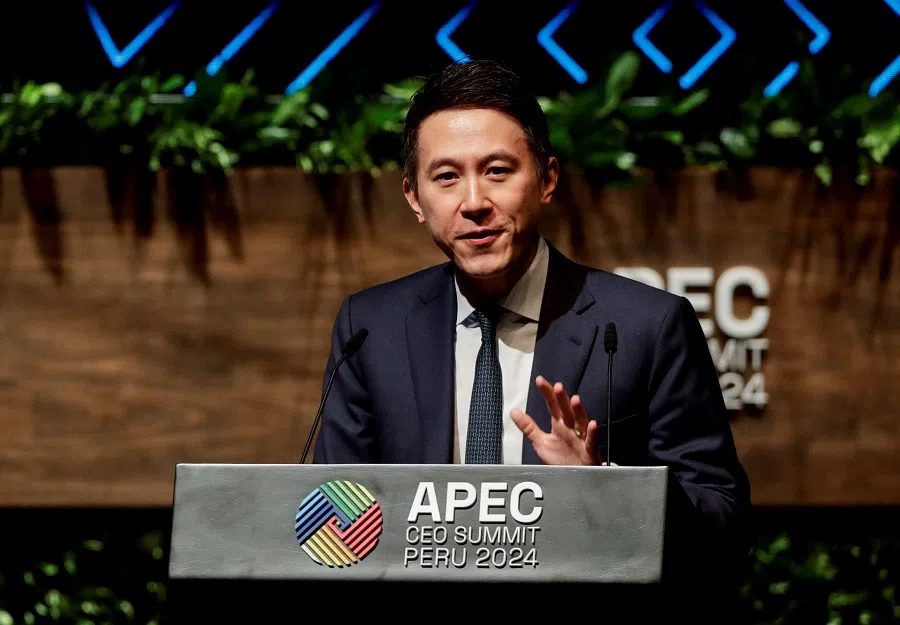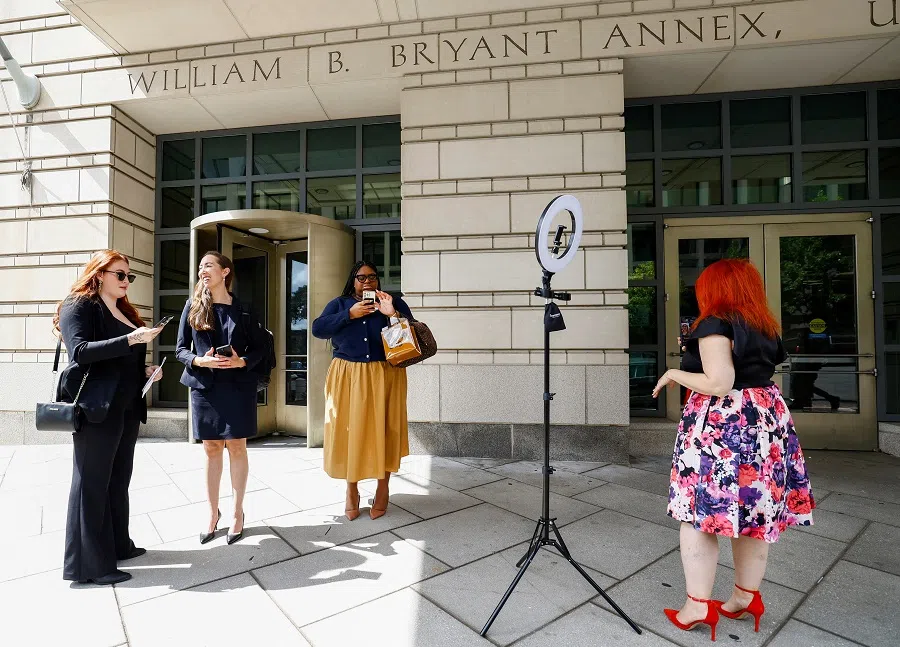Donald Trump: White knight for TikTok?
As the impending ban on TikTok nears, East Asian Institute deputy director Chen Gang takes a look at how US President-elect Donald Trump might save the app from the divest-or-ban ruling, despite his previous stance against the app.

TikTok is edging closer to a potential nationwide ban in the US after it recently lost an appeal against a law mandating the video-sharing app to divest from its Chinese parent company ByteDance by 19 January 2025. The tech giant now plans to challenge the divest-or-ban ruling with an appeal to the Supreme Court.
However, US President-elect Donald Trump has expressed hope that he might play the role of a white knight to save TikTok’s US operations. Although Trump previously sought to ban TikTok in 2020, he has since had a change of heart, remarking that young people would “go crazy without it”. During the 2024 presidential campaign, both Trump and his opponent Kamala Harris garnered millions of views on their respective TikTok accounts.
The stance Trump ultimately takes will have a significant impact on TikTok’s future in the US, which remains uncertain amid the growing rivalry between the US and China, as well as concerns over data privacy, cybersecurity and foreign influence. While some of Trump’s top cabinet nominees support a TikTok ban, Trump himself may adopt a more flexible position during his presidency.
Why did Trump change his position on TikTok?
Trump, who unsuccessfully attempted to ban TikTok during his first term in 2020, has since reversed course and opposed the forced sale of the app. He argued that forcing TikTok’s sale would only benefit Meta, the parent company of Instagram, which sees TikTok as a formidable rival. Meta, which had suspended Trump’s access to its platforms for two years following the Capitol riots, would be a clear beneficiary of TikTok’s ban or forced divestiture, as its platforms could absorb TikTok’s US user base.
With TikTok providing an income stream for content creators, influencers and small businesses, Trump may be cautious about alienating voters and businesses in the face of a potential recession.

However, Trump’s shift in stance towards TikTok most likely goes beyond his complicated relationship with US-based social media companies. While Trump has publicly mended his relationship with Meta CEO Mark Zuckerberg (following a meeting at Mar-a-Lago), other factors very likely influenced his decision.
Trump’s position on TikTok may be shaped by political and financial considerations. Key figures in his administration, such as Marco Rubio and Mike Waltz, have long been advocates for a tough stance on TikTok, but influential billionaire donors such as Jeffrey Yass, a major investor in TikTok’s parent company ByteDance, have financial incentives to keep the app operational in the US. After a meeting between Yass and Trump in March 2024, the former president reversed his preference for banning TikTok.
Additionally, Trump may face political backlash in a country where half the population uses TikTok. The platform is particularly popular among Gen Z voters, and a Pew Research Centre survey has shown that support for a TikTok ban has declined among American adults. With TikTok providing an income stream for content creators, influencers and small businesses, Trump may be cautious about alienating voters and businesses in the face of a potential recession.
There is also hope that the Supreme Court will strike down the appeals court’s ruling, citing First Amendment protections for free speech. Given that TikTok is seen as an outlet for self-expression, the court could rule in favour of protecting the platform’s continued operation in the US.
China has made it clear that it would take steps to protect its interests, indicating that discussions among Chinese officials, ByteDance and the US government are ongoing.
The role of lobbying
Beyond political and judicial obstacles, lobbying forces — both from TikTok and China — should not be underestimated. TikTok CEO Chew Shou Zi has reportedly consulted with Tesla CEO Elon Musk, a close adviser to Trump, regarding the incoming administration’s tech policy.

On the Chinese side, Beijing opposes a forced sale of TikTok, citing the sensitivity of its algorithms and technology. China has made it clear that it would take steps to protect its interests, indicating that discussions among Chinese officials, ByteDance and the US government are ongoing.
Trump’s business-oriented mindset, which heavily influences his approach to China, will affect not only his decision on TikTok but also his broader policy towards Chinese-linked tech companies. His foreign policy, particularly with China, will most likely prioritise economic interests over ideological considerations. While he remains wary of China’s geopolitical ambitions, his policies are more likely to be shaped by pragmatic, economically beneficial deals — such as opening Chinese markets and reducing the trade deficit.
Offering transparency through third-party audits or allowing local governments to oversee operations can help reduce suspicion about foreign manipulation or censorship.
Lessons to be learned
The TikTok controversy highlights the impact of transnational forces — particularly technology — on national sovereignty. This situation is not unique to China-backed tech giants; any multinational tech company could face similar regulatory challenges in foreign markets, and the global regulatory landscape is shifting.

For Chinese tech companies looking to expand globally, localising data storage and operations in foreign markets is crucial to mitigate concerns over national security and data access. Offering transparency through third-party audits or allowing local governments to oversee operations can help reduce suspicion about foreign manipulation or censorship.
Furthermore, diversifying ownership and expanding stakeholder bases in host countries can enhance resilience and reduce the risk of sanctions. Finally, companies should engage in public relations efforts to improve their image and foster mutual understanding in foreign markets.
As TikTok’s future in the US hangs in the balance, the outcome will not only affect the platform but also set a precedent for how foreign-owned tech companies are treated in an increasingly fragmented global digital landscape. Trump’s pro-business approach could very well tip the scales in TikTok’s favour, especially as he balances political, economic and lobbying pressures in his second presidency.





